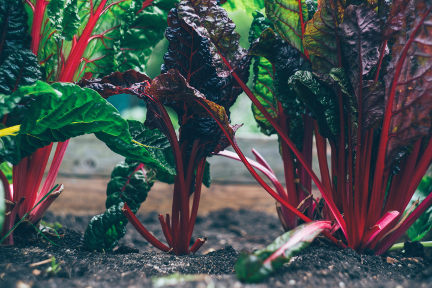In Speech 8, I showed you one possible solution to feeding a world growing out of control. Consider becoming vegetarians.
And it is possible that in the near future, most people will make the switch from eating meat to eating plants.
There are many advantage to this:
- It is good for your health.
- More efficient use of land and other limited resources.
- We can leave the forests, jungles and oceans alone and give animal species a chance to recover and to survive.
- Does not produce as much greenhouse gases, if managed properly. No more burning of trees.
- We can grow food in our concrete jungles much easier than we can grow herds.
But how realistic is this?
- People like eating meat. There are many cultural, ritualistic and economic benefits to continuing meat eating.
- When people make more money, they tend to buy meat. So worldwide meat consumption is actually on the rise.
- There are more nutrients (Protein, Vitamins, Minerals, etc) per pound of meat than plant-based protein.
- The production and sale of animal products employ more than 1.3 billion people worldwide.
Since we cannot realistically expect everyone to become vegetarians, then the number of people our planet can support is closer to 9 Billion
And a few weeks ago I read about a possible solution. A solution that, when perfected, could possibly allow us to produce meat and fish to meet increased demand.
Artificial meat is the solution. Also called invitro, synthetic or cultured meat.
The first time I read about this product, I thought to myself. “Why would I want to eat meat made from plant processed to look and taste like meat? Might as well just eat the vegetable”
As I read on, it turns out to be something completely different. We are actually talking about real meat.
In this process, they take samples of meat from an animal and grow them. Muscles, fat, etc. Not GMO.
Why is artificial food good for you and the environment?
- Reduced Greenhouse gas production.
- No need to kill animals
- Meat be grown with almost no fat or other unwanted parts
- Fish and other sea animals can be allowed to multiply and be left alone because we can now grow what we need.
- Can result in better fed population
- Less animal born disease
- Reduces the risk of antibiotic resistance due to less need
- Uses significantly less land, water, energy and food inputs.
Most people go to the grocery or restaurant and have very little idea about the animal they are about to eat. They never see the actual animal. So what is the difference between a steak grown in a petri-dish vs one carved out of a steer, pig or fish?
So when will we be able to buy animal-free meat?
Both Memphis Meats and Mosa Meat, an offshoot of Post’s lab, hope to have competitively priced products by 2020. “In terms of commercial sales, I would say in four to five years,” says Post. “It will still be a somewhat expensive burger, around the $10 mark. Another few years of commercial production and the price will start to fall further.”
Challenges:
- Up scaling the process. To grow cells industrially requires a large ‘bioreactor’ – a high-tech vat that can provide the perfect conditions for growth but also the movement and stimulation to exercise the cells. An alternative idea is to encourage shops and restaurants to grow their own meat on a smaller scale. In September 2016, Super Meat, an Israeli biotech company, launched a crowdfunding campaign to raise $100,000, which they more than doubled, to develop cultured-chicken-growing devices that could be “placed at grocery stores, restaurants, and ultimately in consumer homes”.
- Another issue is the nutrient-rich ‘serum’ that feeds the cells. Successful serums have been a cocktail of sugars, amino acids and animal blood. Not only are blood-based serums a source of worry for vegetarians and vegans, but “there would not be enough serum in the world to grow all the cells you need to mass-produce,” says Post.
For now, the best and immediate solution is moderation in eating meat, frequency and portion size is key.
______________________________________________________________________________
The Evaluation
- All the facts have been researched which increases credibility.
- Very well organized.
- The evaluator was persuaded because of the sincerity, credibility and passion of the speaker.
- The speaker should increase voice inflections or variations.
- The speaker should walk around more, own the stage.
Sources:
- https://www.theguardian.com/environment/2015/oct/13/agriculture-farming-food-addiction-mea t-harvest-hungry-world
- http://www.onegreenplanet.org/environment/world-hunger-population-growth-ditching-meat/
- https://www.nationalgeographic.com/foodfeatures/feeding-9-billion/
- http://www.bbc.com/future/story/20160926-what-would-happen-if-the-world-suddenly-went-vege tarian
- http://www.slate.com/articles/health_and_science/feed_the_world/2014/05/meat_eating_and_cl imate_change_vegetarians_impact_on_the_economy_antibiotics.html
- https://www.healthline.com/nutrition/animal-vs-plant-protein#section1
- http://www.bbc.com/earth/story/20160311-how-many-people-can-our-planet-really-support
- https://www.livescience.com/16493-people-planet-earth-support.html
© 2019, Norman. All rights reserved.



